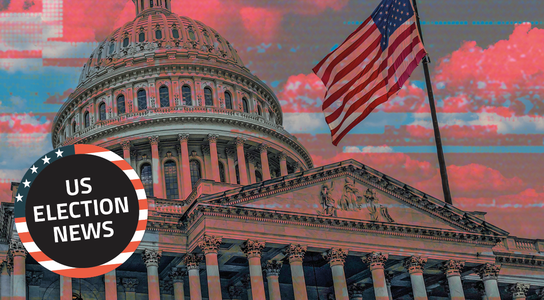What’s the most pressing tech issue in the climate crisis? How do we measure the full environmental impact of Big Tech? And what can the climate movement learn from the tech accountability movement to support environmental justice?

These questions and other concerns linking the digital rights and climate movements took centre stage in a dialogue hosted by Global Witness and Access Now at RightsCon earlier this month. The conversation grew out of work our Digital Threats team has been doing around how online hate speech, incitement to violence, and election disinformation can cause serious damage to societies and democratic processes including climate action.
We’ve also looked at the effects of online harassment on climate experts. Our survey of hundreds of climate scientists around the world showed that abuse is widespread (39% of scientists polled) and has serious impacts. More than a fifth of affected scientists experienced depression and almost half (48%) reported a loss of productivity resulting from the abuse.
But there are many more aspects to technology’s relationship to the climate emergency, as our speakers explained from their own research and activism.
Quito Tsui, research manager at the Engine Room, explained how technology and environmental justice are intensely intertwined – not just in activist organising, but for example in monitoring deforestation through the use of drones, or the use of more accessible data collection methods and modelling that can inform policy. But she pointed out the tension in these tools, how the tech industry that creates these systems of use simultaneously adds to the work that environmental justice actors then need to undo.
For Disha Ravi, a climate justice activist and founder of Fridays For Future India (and member of Global Witness’s Advisory Council), tech platforms have been both enabling and dangerous. She spoke about using social media and other technology extensively to run digital campaigns, reach wider audiences and share resources, but also running into trouble with authorities because of Big Tech’s tracking mechanisms and sharing of user data.
And then there’s the environmental footprint of the companies themselves – limited not just to the emissions they produce, but the behaviours they drive. Ollie Hayes, Policy and Campaigns Lead at Global Action Plan, described the trouble with the business model underlying most of these companies, and the environmental impacts associated with surveillance advertising.
He showed how the estimated 1% of global energy consumption used in the process of serving online ads powers surveillance-based adverting, which is invasive, manipulative, and inherently wasteful in the real-time bidding system. He encouraged more environmental voices to take up the campaign against targeted ads, especially as the alternative system of contextual ads represents a far better way of keeping the internet free, with a much smaller environmental footprint.
Isedua Oribhabor, Business and Human Rights Lead at Access Now, has highlighted how many large tech companies have prominent public statements about their commitments to the environment and climate, but fall short when it comes to action. They may invest lots of money in purportedly green initiatives, but still fail at addressing their most salient climate risks, which are often centred around the protection of environmental defenders and rooting out disinformation (for example, YouTube’s failure to combat climate disinformation, exposed in a recent report by the CAAD coalition and the Center for Countering Digital Hate).
The discussion also covered the parallels between the fossil fuel economy and the tech economy – in how the charge of hypocrisy is levelled at critics of each system who continue to operate within it (for example, travelling by car). Yet speakers agreed it is entirely legitimate to criticise a bad system when its structures are so entrenched. The responsibility is on companies to operate ethically, rather than individuals to find responsible operators, and on regulators to monitor and punish them when they do not.
We closed with a call for tech workers to support environmental organisers in being safe online, make digital tools accessible to environmental justice actors around the world, and remain attuned to issues of concern. Allies can pay more attention to the relationship of environmental justice issues to digital rights, and what the just transition into a regenerative economy looks like to avoid harm to workers, communities, and regions while benefiting from climate action. There’s more common cause in campaigning to change the toxic business model, and to tell stories that expose harms and build models for strengthening digital and environmental justice.
Author
-
Henry Peck
Senior Campaigner - Digital Threats


